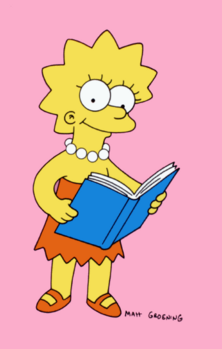Truth, Lies and Wikipedia
I'll admit it; I use Wikipedia a lot. It's a fast, easy and accessible way to get information. Want to know how many goals Mats Sundin scored last year, which starlet married Frank Sinatra in 1951 or how far away the moon is? It's all on Wikipedia. I've even used it as a research starting point for some of my MBA papers. But with academic work I always, and I mean always, took pains to verify the wiki-information with information from a separate source. If there was a discrepancy, I went with the other source. Somehow, I couldn't bring myself to really trust Wikipedia.
I'm a minority there, it seems. Wikipedia has slavish devotees. Most just read and reference, but a small set spent hours upon hours editing and posting the encyclopedic content. And there's the rub - these individuals are posting on a wide spectrum of topics and they are posting the 'truth' as they know and understand it. The wiki-idea is that the wisdom of the group will ensure that the whole truth on a subject is revealed in the end. But as philosophers have told us for centuries, truth can be an elusive thing. It seems like it should be clear. A fact is true, or it's not. And for some facts, this is indeed the case. Dates, times, places, measurements - these can all be independently verified. We can look to a thing and say, yes, it is blue, yes, it is 20 feet high. But many Wikipedia entries contain opinion, interpretation and extrapolation. And that can be a problem.
An excellent article from the New Yorker highlights this Wikipedia truth conundrum. Because anyone can post or edit an entry - not just subject matter experts - it isn't always clear how truthful an entry is at any given time. Many can be considered to be 'truthful enough' - which is fine if you and your friends are looking to settle an argument about who won the Academy Award for Best Actor in 2003 (Sean Penn, thank you very much). The real issue arises when there are multiple perspectives, and multiple versions of the truth. The Armenian Genocide, the politics of George Bush, Israel - these are all topics that cause much consternation and contain elusive truths. Relying on Wikipedia to understand any of them may be a dodgy business.
I'm not bashing Wikipedia - it's a handy resource. I'm just saying, check those references. Read more. And decide what is true for yourself.
I'm a minority there, it seems. Wikipedia has slavish devotees. Most just read and reference, but a small set spent hours upon hours editing and posting the encyclopedic content. And there's the rub - these individuals are posting on a wide spectrum of topics and they are posting the 'truth' as they know and understand it. The wiki-idea is that the wisdom of the group will ensure that the whole truth on a subject is revealed in the end. But as philosophers have told us for centuries, truth can be an elusive thing. It seems like it should be clear. A fact is true, or it's not. And for some facts, this is indeed the case. Dates, times, places, measurements - these can all be independently verified. We can look to a thing and say, yes, it is blue, yes, it is 20 feet high. But many Wikipedia entries contain opinion, interpretation and extrapolation. And that can be a problem.
An excellent article from the New Yorker highlights this Wikipedia truth conundrum. Because anyone can post or edit an entry - not just subject matter experts - it isn't always clear how truthful an entry is at any given time. Many can be considered to be 'truthful enough' - which is fine if you and your friends are looking to settle an argument about who won the Academy Award for Best Actor in 2003 (Sean Penn, thank you very much). The real issue arises when there are multiple perspectives, and multiple versions of the truth. The Armenian Genocide, the politics of George Bush, Israel - these are all topics that cause much consternation and contain elusive truths. Relying on Wikipedia to understand any of them may be a dodgy business.
I'm not bashing Wikipedia - it's a handy resource. I'm just saying, check those references. Read more. And decide what is true for yourself.


0 Comments:
Post a Comment
<< Home